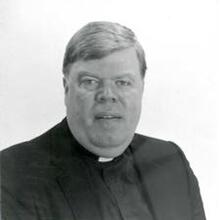Who?
During my research into Jansenism, I discovered a nun named Jacqueline Pascal (1625–61). The sister of the philosopher Blaise Pascal, her life and writings are a monument to the struggle of women, especially women religious, for spiritual freedom and theological education in the church.
The youngest child of three, Jacqueline Pascal became the caregiver for her father during his last years. She struck an agreement with him: she would take care of him until his death and would then enter the convent. At his death, however, her sickly brother Blaise insisted that Jacqueline remain home as his caregiver. In a letter to Blaise, Jacqueline refused to be trapped in the domestic role and insisted on the right to follow her own vocation. “It’s no longer reasonable to continue my deference to other’s feelings over my own. It’s their turn to do some violence to their own feelings in return for the violence I did to my own inclinations during four years. It is from you, in particular, that I expect this token of affection.”
When the young nun became entangled with her two siblings during the “crisis of the dowry”—Blaise and Gilberte wanted to keep their father’s inheritance for their own families—the abbess of Port-Royal, Angélique Arnauld, encouraged Jacqueline to enter the community without a dowry. One of the abbess’s reforms had been the abolition of the traditional dowry requirement for choir nuns. The convent would now accept worthy but poor candidates and reject wealthy candidates without an authentic call. Vocational freedom would now trump parental desire and economic status.
As director of the convent’s celebrated school, Sister Jacqueline devised an educational program unusual for its theological sophistication. Every pupil was to have a French/Latin psalter as her basic prayer book. On feast days, the nun-teacher would deliver her own commentary on the Gospel for the feast.
The texts used for instruction had unusual theological heft: Letters of Saint Jerome, Teresa of Avila’s Book of Foundations and Jansenius’s Reform of the Interior Person. At the center of this educational design was the work of the nun-teacher as spiritual director. “The greatest help in improving the conduct of the pupils is our custom of having private conversations with them. In these interviews we relieve their anguish, wage war against their faults, and help them to see the hidden roots of their vices.”
While many parents praised such a sophisticated formation, critics of Port-Royal denounced the nuns as théologiennes, women who dabbled in matters reserved to the clergy and encouraged their students to do the same.
In 1661 Sister Jacqueline became embroiled in the “crisis of the signature.” King Louis XIV ordered all members of the clergy, religious and teachers in his kingdom to sign a statement submitting to the church’s condemnation of certain theological propositions allegedly held by Jansenius in his work on Augustine.
Antoine Arnauld, the leading Jansenist theologian, devised an ingenious distinction to permit Jansenists to sign the document. According to this distinction, the church could bind the conscience on matters of droit (faith and morals) but could not bind the conscience on matters of fait (empirical fact). Consequently, Jansenists could sign the condemnation, letting it be known that their signature only assented to the condemnation of the heretical propositions, not to the allegedly erroneous condemnation of Jansensius for having held these positions.
Sister Jacqueline protested such a subterfuge. “When they present this formula for signature, what prevents us from simply replying, ‘I know the respect I owe our lord bishops, but my conscience does not permit me to sign affirmatively that something is in a book I’ve never read,’ and just waiting to see what will happen? What are we afraid of? Exile and dispersion for the nuns? Confiscation of our temporal goods? Prison and death?”
Under pressure, Sister Jacqueline reluctantly signed and indicated the strictly reserved nature of her assent in a postscript. When she died shortly afterward, clearly chagrined at her surrender to political pressure, she was acclaimed a martyr to conscience. She had embodied the right of the nun to be a théologienne: to teach, to provide spiritual direction, to acquire a theological culture and in crises of conscience to withhold assent.








